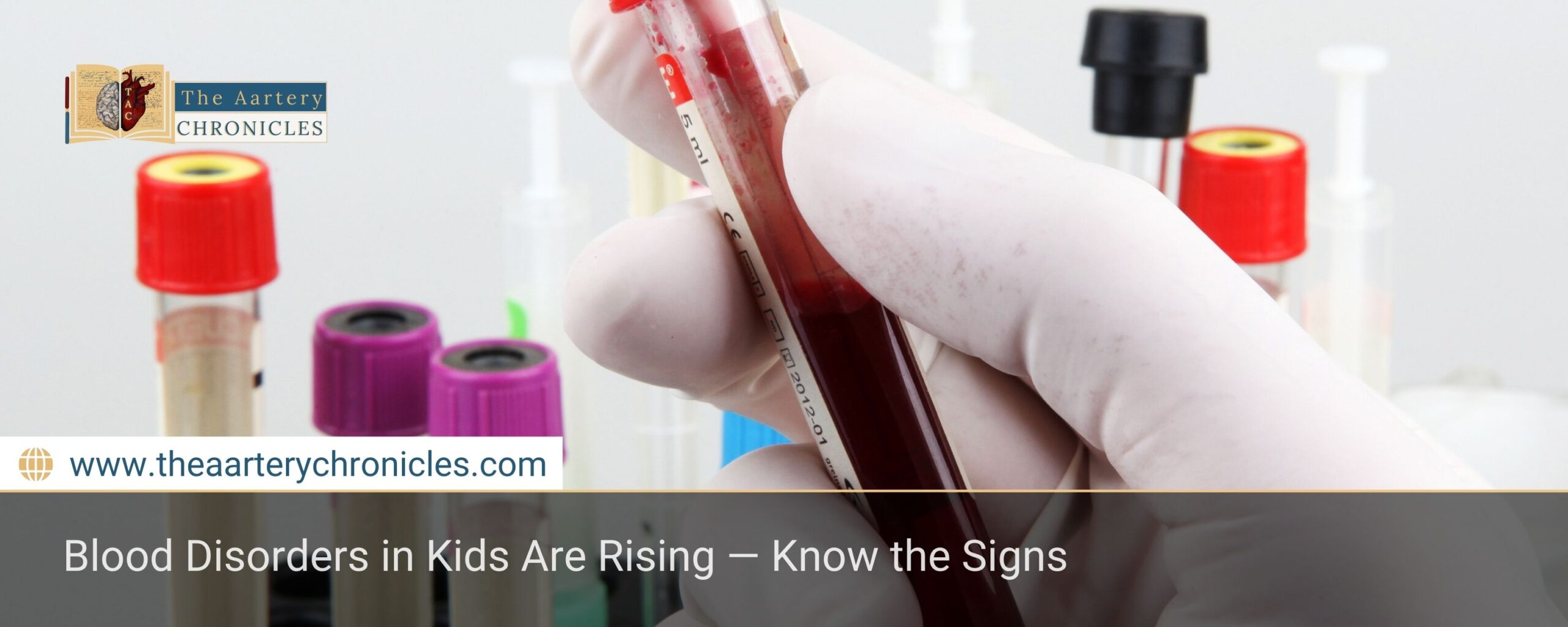

Blood Disorders in Kids Are Rising — Know the Signs
A new study by Metropolis Healthcare has revealed concerning data about inherited blood disorders, known as hemoglobinopathies, in young children across India. The study, conducted over three years (2021–2024), screened nearly 20,000 children under the age of 12 who were suspected of having these conditions. Alarming results showed that 28.4% of these children were affected.
What Are Hemoglobinopathies?
Hemoglobinopathies are genetic conditions that affect the red blood cells, such as thalassemia and sickle cell disease. These disorders can cause serious health issues like anemia, fatigue, delayed growth, and in severe cases, organ damage.
Most Common Disorders Found
- Beta-thalassemia trait was the most common, found in 38.7% of affected cases.
- Sickle cell disease or trait came next, found in 30% of the cases.
Younger Children at Greater Risk
More than half of the affected children were below the age of 3, highlighting the urgent need for early screening, even before symptoms appear. Experts say testing during pregnancy and soon after birth could help detect these conditions early and reduce their impact.
Regional Differences Across India
The study also pointed out major regional differences:
- The Northeast had the highest rate of positive cases (48.44%), mostly due to a type called Hemoglobin E.
- Central India showed a high number of sickle cell disease cases (37.36%).
- South India had an overall positivity rate of 34.09%.
- Beta-thalassemia trait was more widespread in Northern and Western India.
Advanced Genetic Testing Key to Early Detection
An earlier nationwide study by Metropolis involving over 65,000 people also supported the importance of molecular testing. Tools like Next-generation sequencing (NGS) can detect subtle genetic changes in key genes—HBB, HBA1, and HBA2—which older tests might miss.
These advanced tests allow for:
- More accurate diagnosis
- Early carrier identification
- Personalized treatment planning
Expert Opinions
Dr. Smita Sudke, Chief of Laboratory at Metropolis in Pune and lead author of the study, said:
“Using advanced tools like Sanger sequencing, Gap-PCR, and NGS helps us catch these conditions early, support family planning, and reduce the long-term health and financial stress on families.”
Dr. Kirti Chadha, Chief Scientific and Innovation Officer at Metropolis added:
“Molecular testing is especially important for complex conditions like beta-thalassemia major and sickle cell disease. It helps explain symptoms like unexplained anaemia and allows us to act before the disease progresses.”
Conclusion
Experts strongly recommend making genetic screening a routine part of maternal and child healthcare. Early diagnosis through modern testing can change the course of these inherited conditions, improving health outcomes and easing the burden on families and the healthcare system.
Source: Inputs from various media Sources

Priya Bairagi
Reviewed by Dr Aarti Nehra (MBBS, MMST)
I’m a pharmacist with a strong background in health sciences. I hold a BSc from Delhi University and a pharmacy degree from PDM University. I write articles and daily health news while interviewing doctors to bring you the latest insights. In my free time, you’ll find me at the gym or lost in a sci-fi novel.








